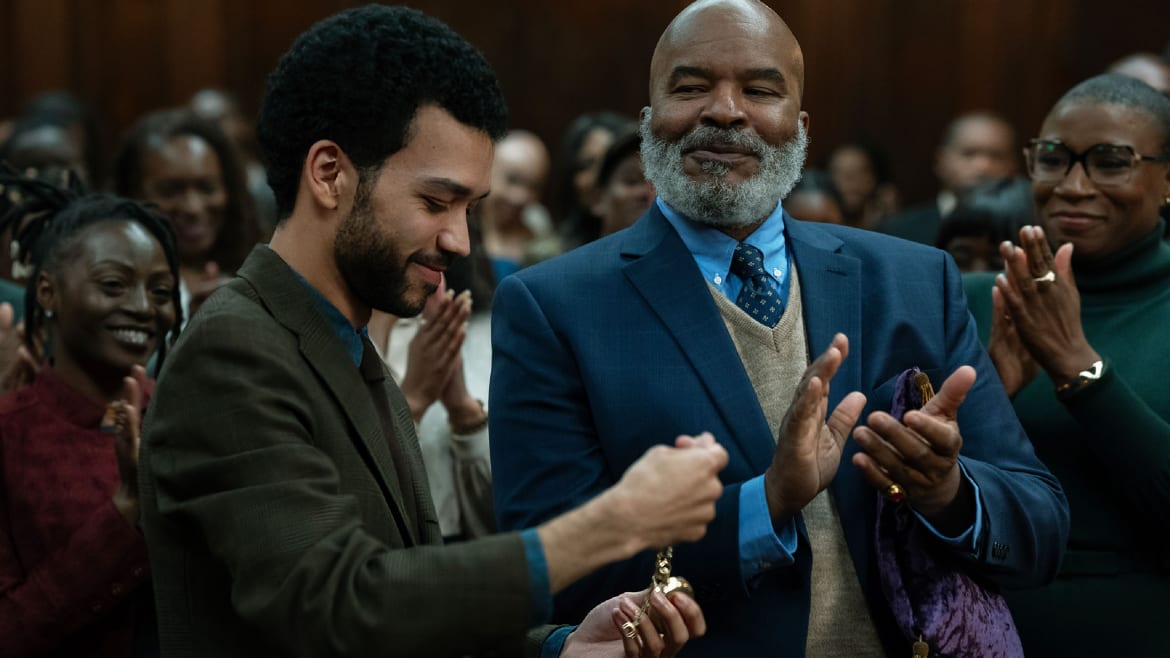Tobin Yelland/Focus Features
PARK CITY, Utah—In fiction, a “magical negro” is a stereotypical figure whose purpose is to use their (quasi-supernatural) powers to aid a white protagonist. The cinema abounds with such individuals, from Dick Hallorann in The Shining to John Coffey in The Green Mile to Bagger Vance in The Legend of Bagger Vance, and it’s that state of affairs which writer/director Kobi Libii strives to satirize with The American Society of Magical Negroes.
A comedy in which a mild-mannered Black twentysomething is enlisted to serve in a secret project that keeps the world safe for whites and Blacks alike, it’s a feature debut (which just premiered at this year’s Sundance Film Festival ahead of its Mar. 22 theatrical bow) with a lot on its mind. However, unlike last year’s far sharper and more complex look at modern issues of race and culture, American Fiction, it proves a muddled and preachy mess that barely earns a single laugh.
Aren (Justice Smith) is an aspiring artist whose yarn sculptures at his latest gallery show are a gigantic disappointment, and not because of the color of his skin but, rather, because they’re terrible. Introduced moving out of the way of a white attendee, Aren is fundamentally deferential and apologetic to any Caucasian who enters his vicinity. The underlying reason for his meekness, though, is never explicated other than it’s a symptom of an intolerant American society that so denigrates and devalues him that he doesn’t feel like he deserves to exist. As such, he’s not really a person with actual distinctive traits or deep convictions so much as a vessel for Libii’s political sermonizing, which crescendos during a finale that resorts to a lot of screaming about “experience” and “acknowledgement.”

